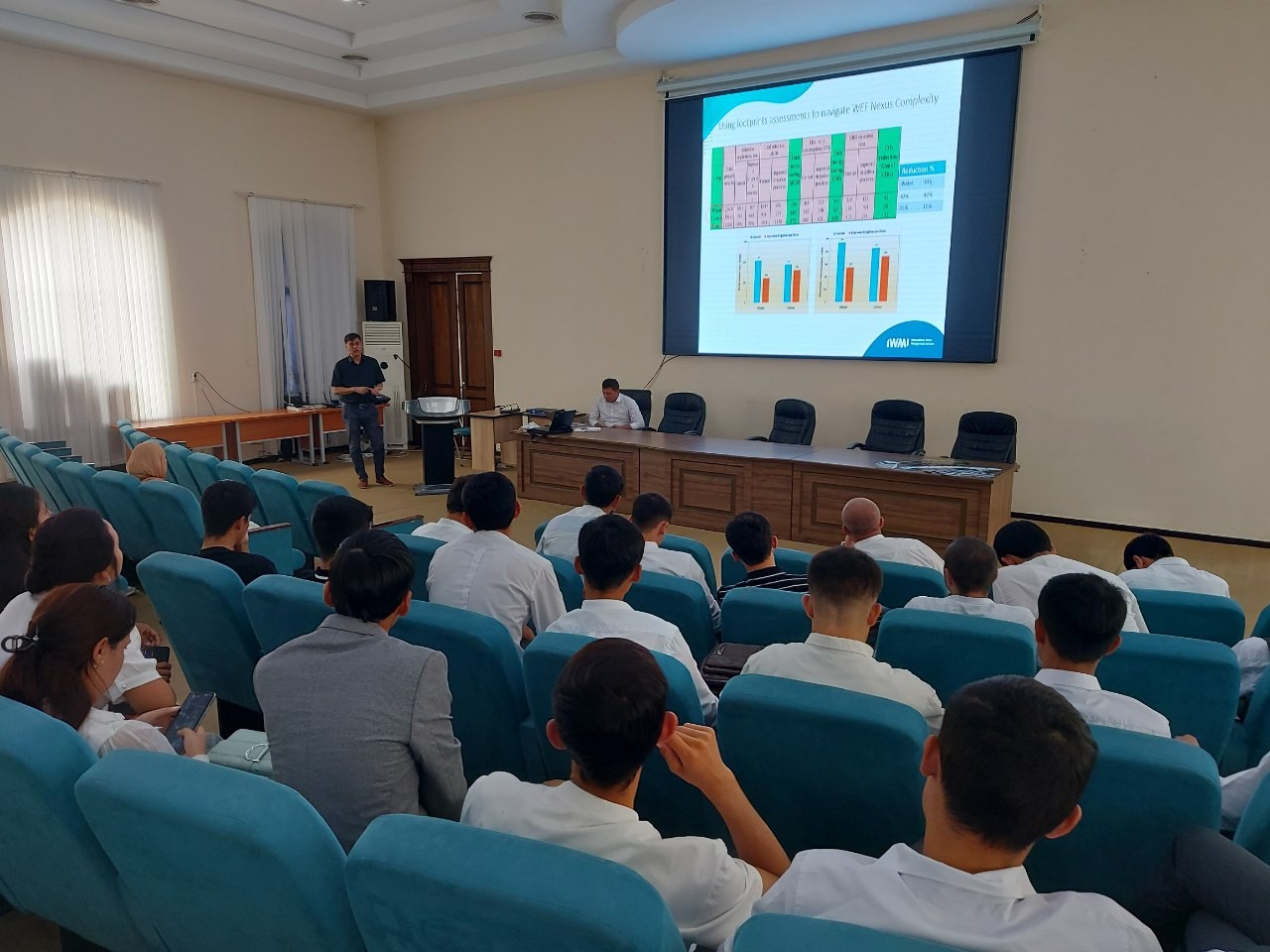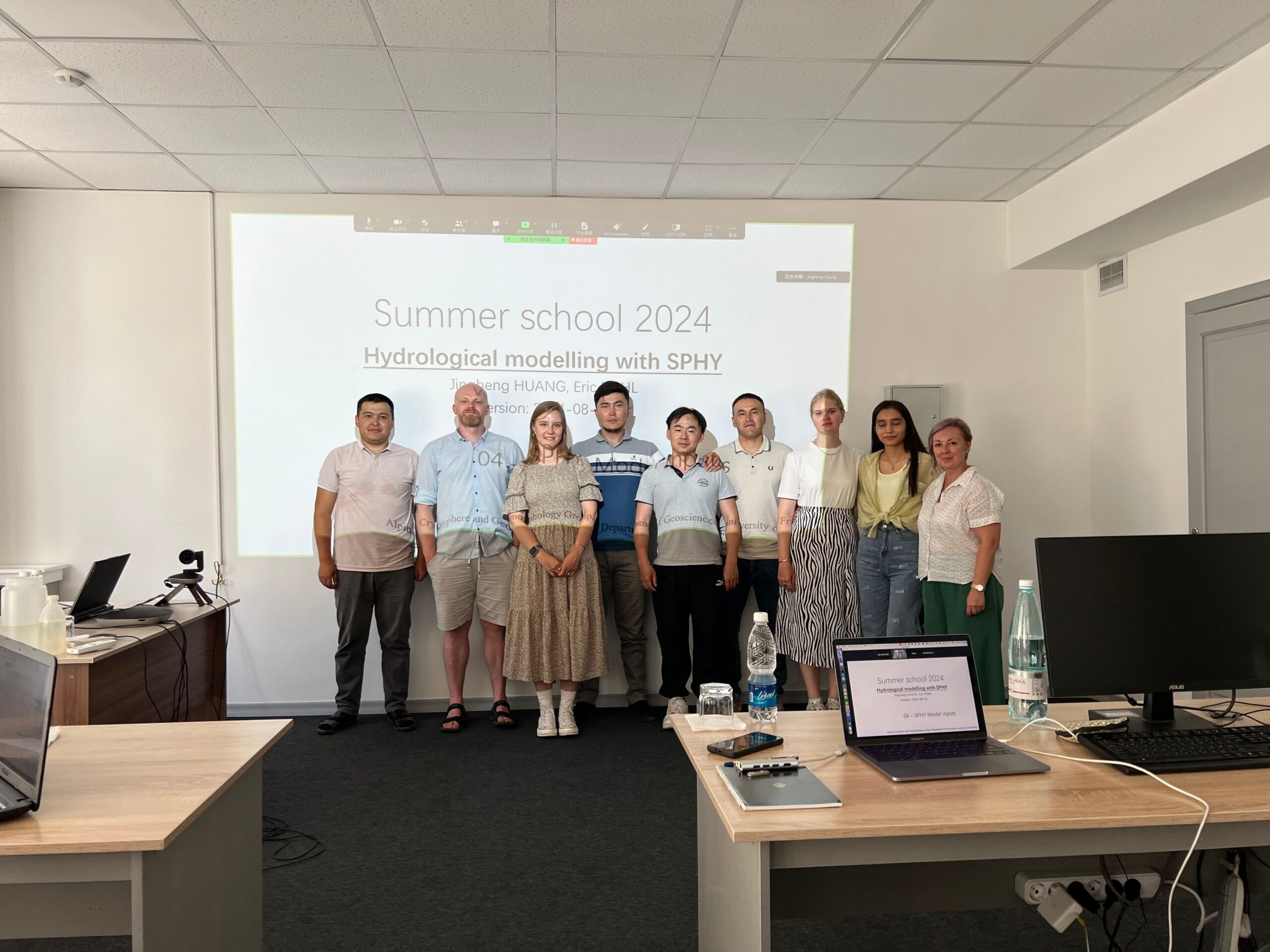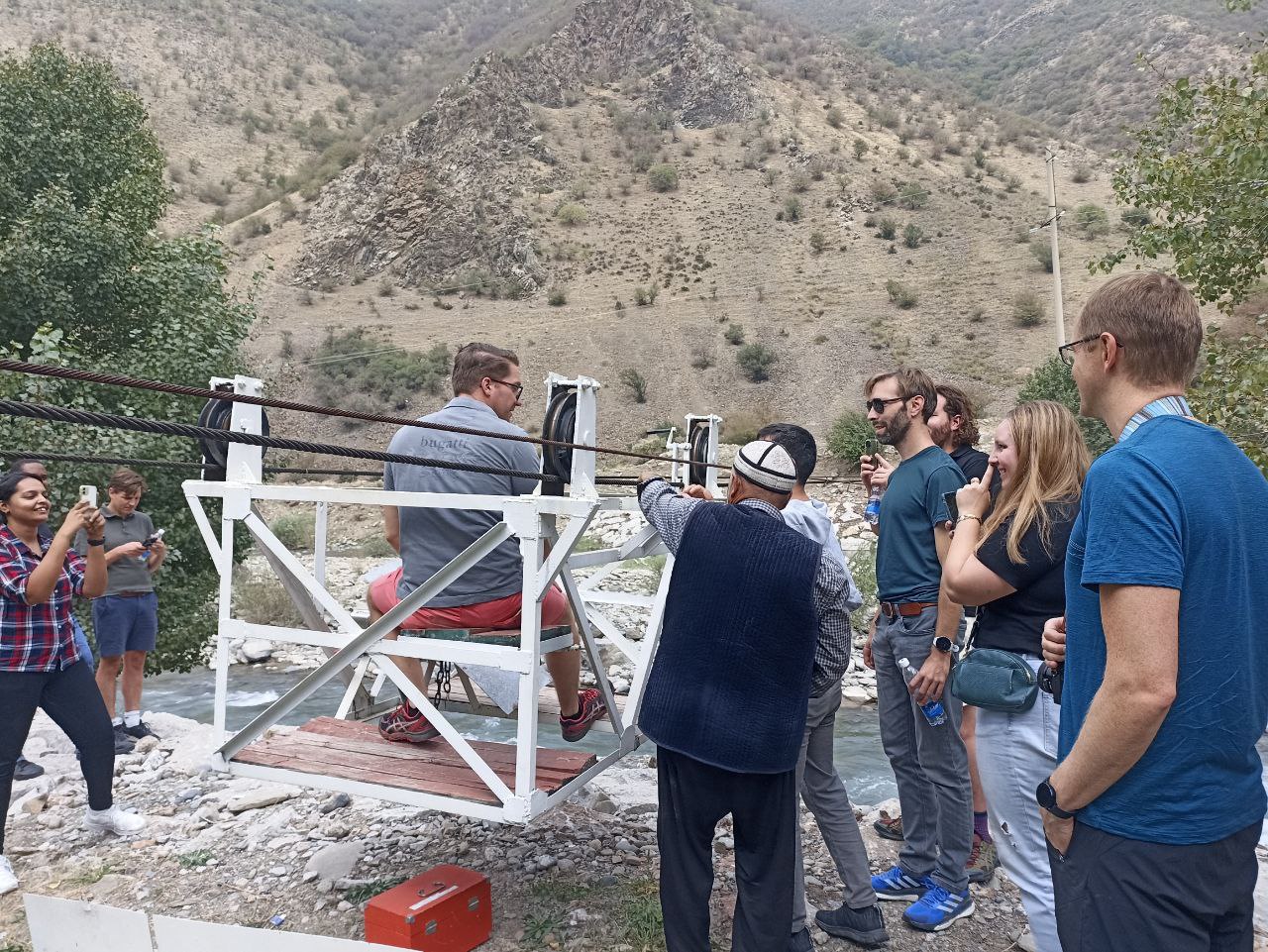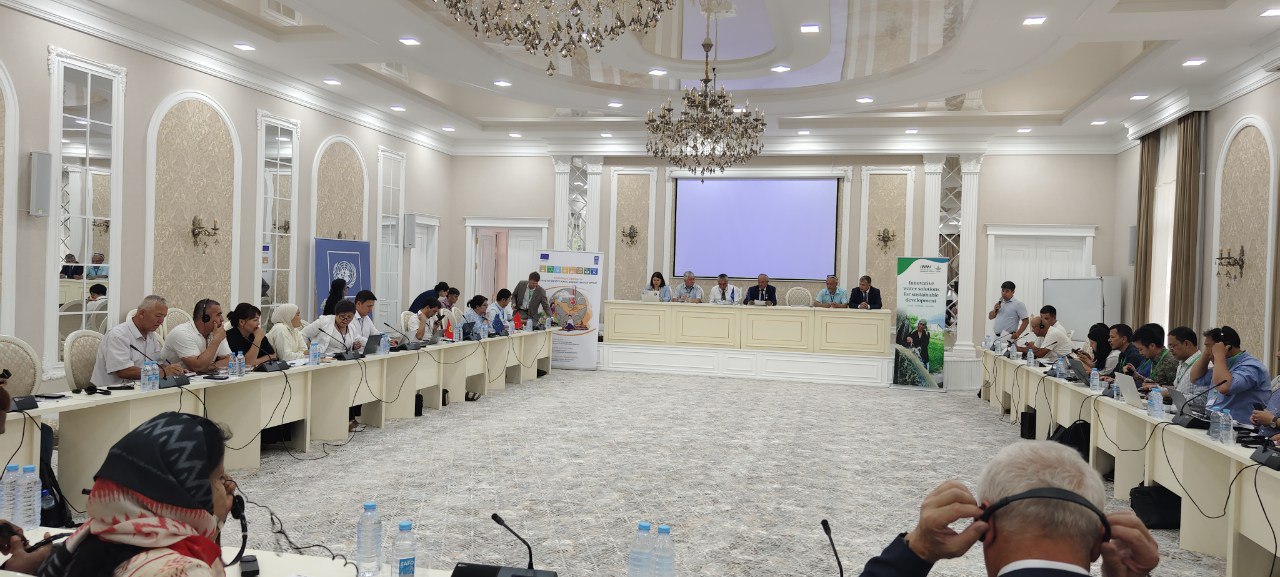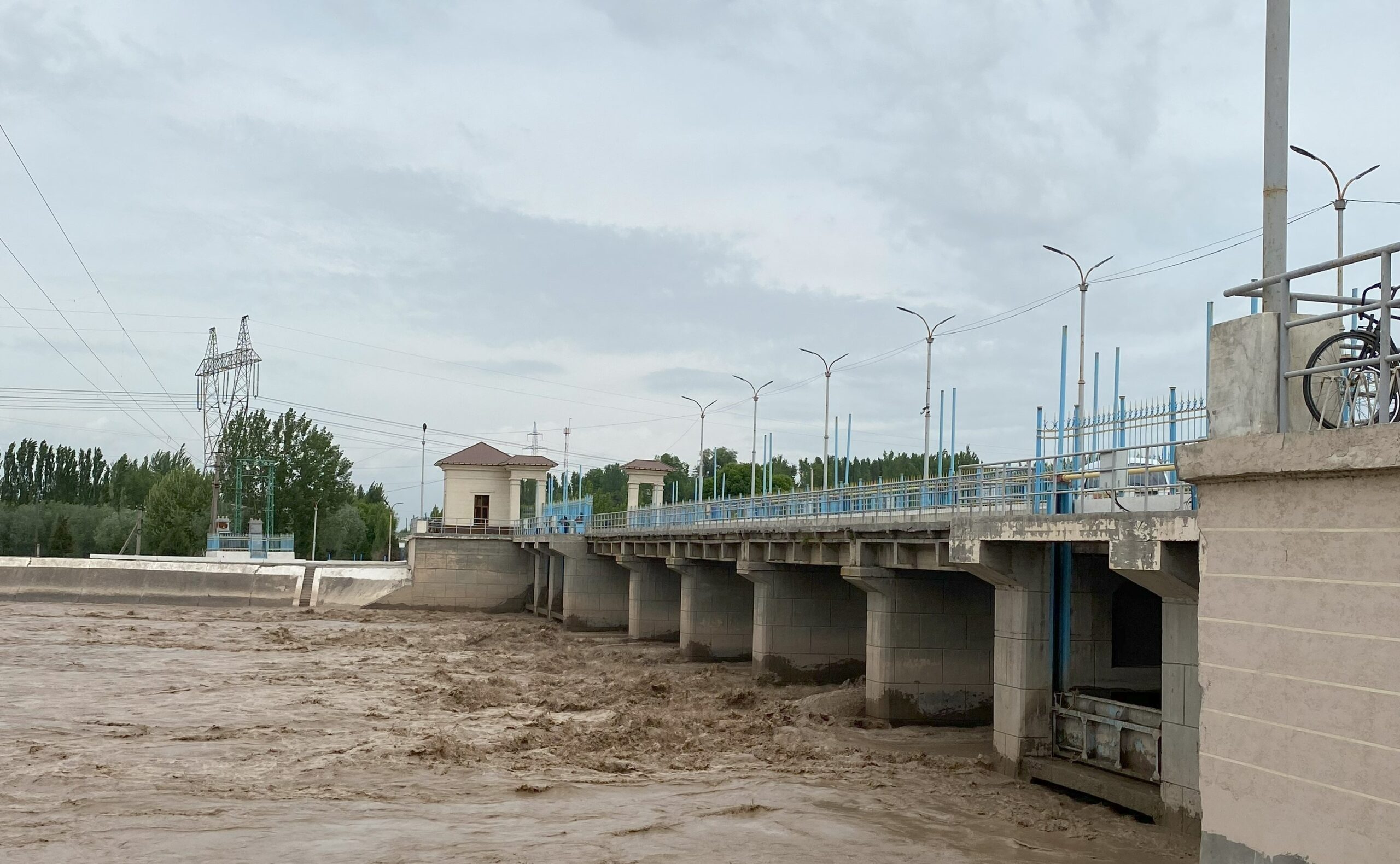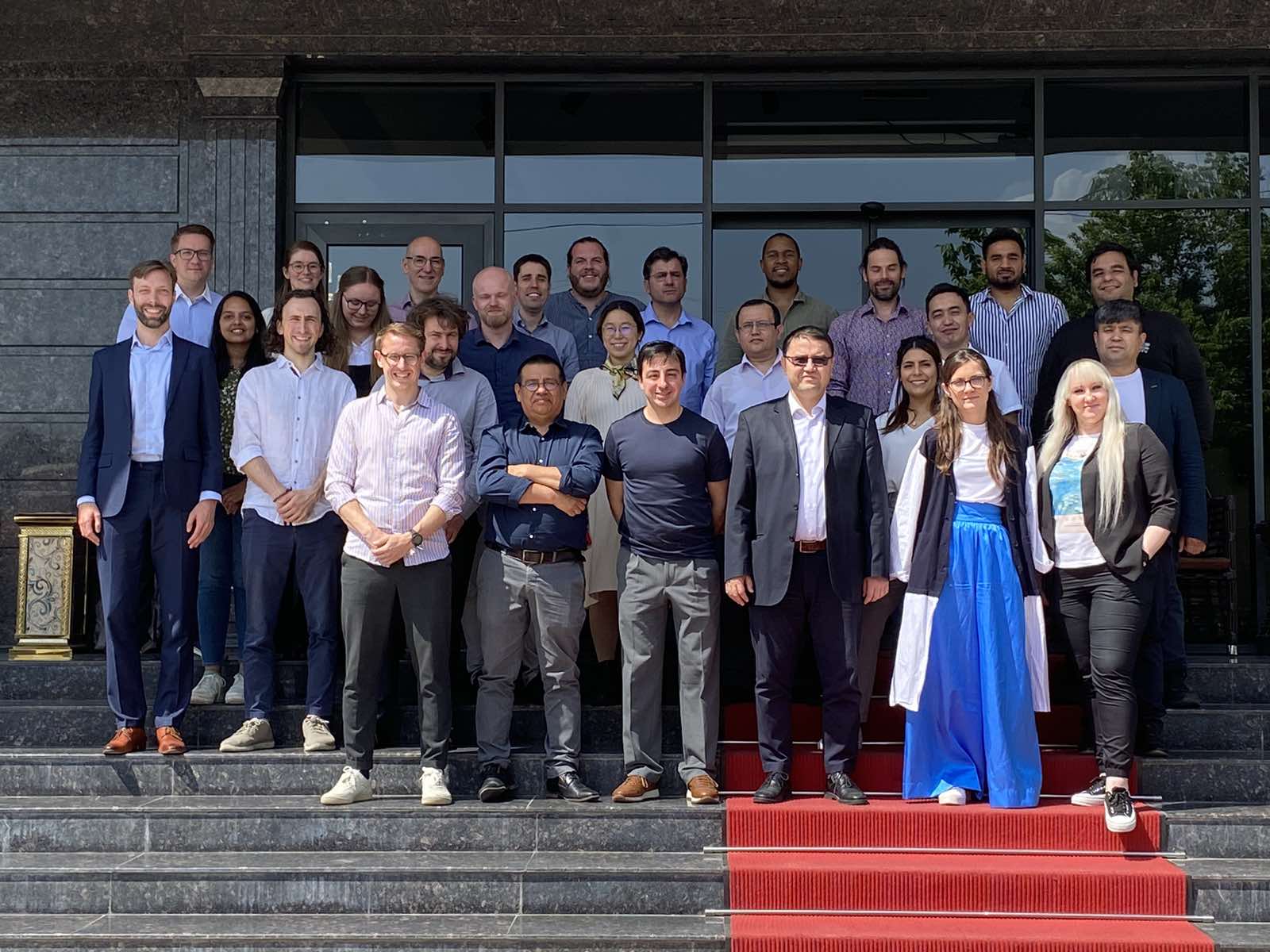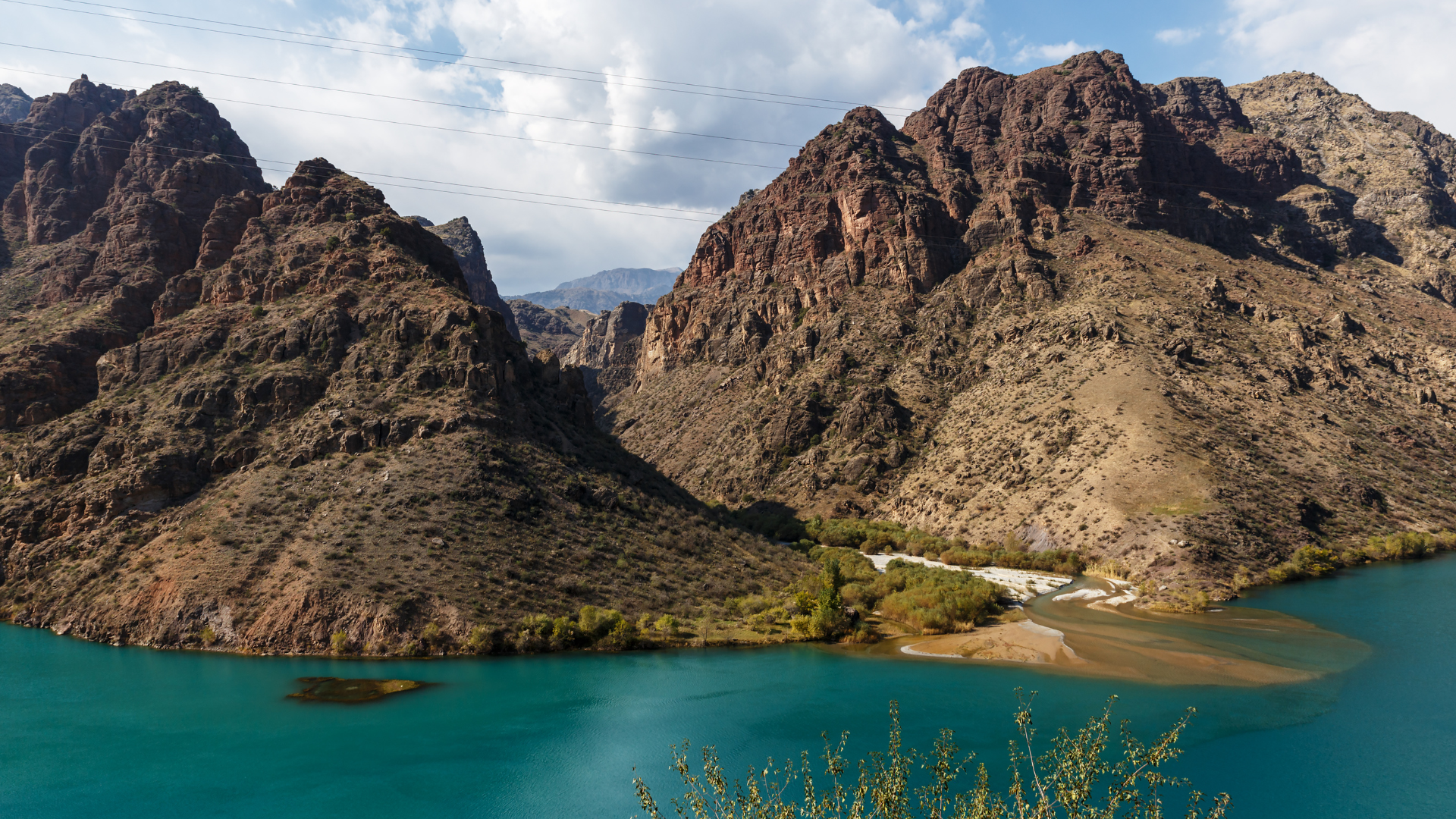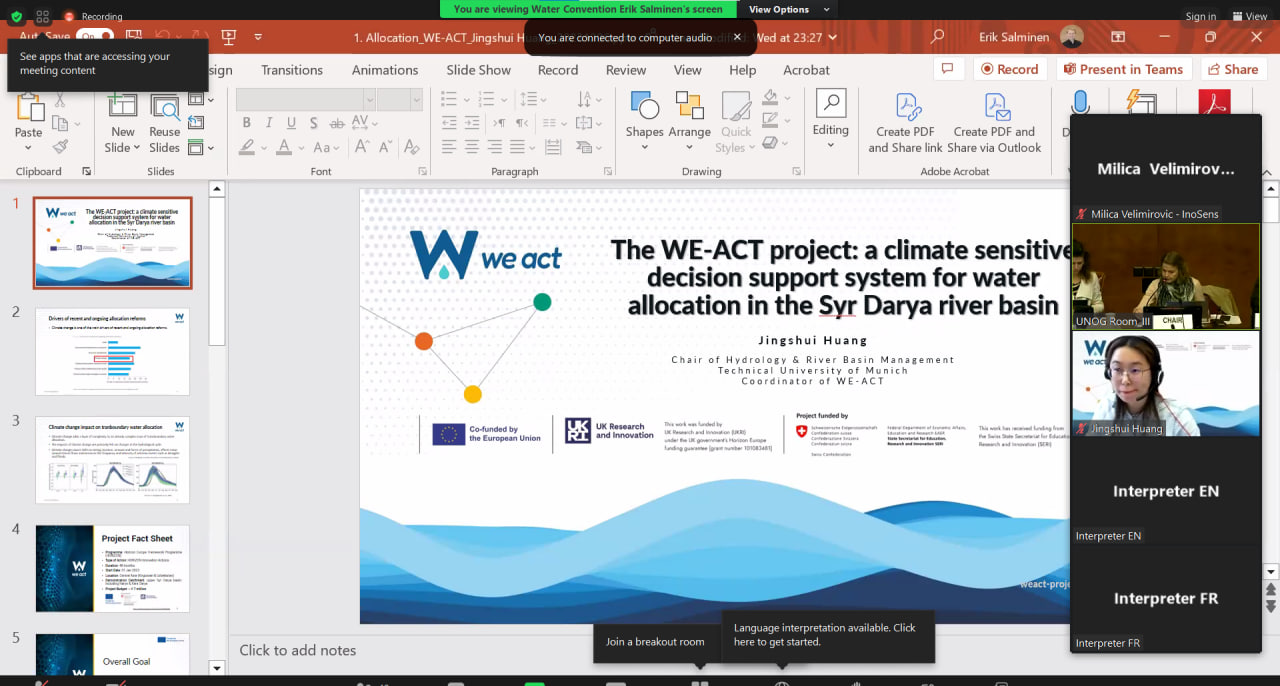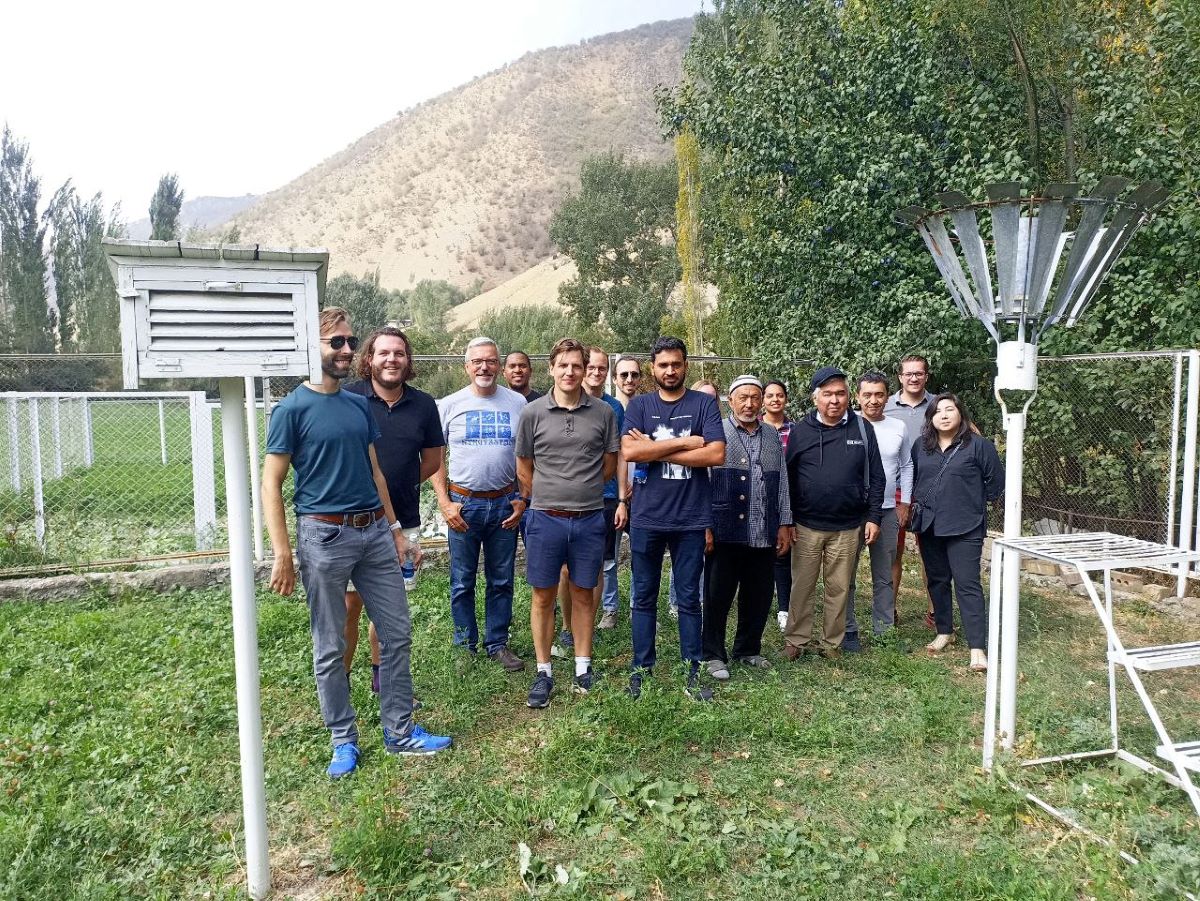To develop a transparent water-sharing regime based on the notion of benefit sharing, valuing the water resources, and adjusting climate-sensitive water allocation regimes, detailed stakeholder analysis and engagement are crucial.
Osh, Kyrgyzstan – September 13, 2023 – The We-Act project, funded by the European Union, organized a Stakeholder Consultation workshop in the city of Osh to address the crucial issue of efficient water resource allocation in the Syrdarya River Basin, particularly in the context of climate change.
Dr. Jingshui Huang, the Project Coordinator of WE-ACT at TUM – Germany, delivered a presentation highlighting the objectives and significance of the project. WE-ACT aims to modernize the hydro-meteorological monitoring network, assess water availability under present and future conditions, determine the value of water through water footprint assessment and allocation modeling, develop and deploy decentralized data storage, prototype a decision support system (DSS) for water allocation, facilitate transboundary stakeholder engagements, and focus on dissemination, communication, and exploitation.
The workshop featured detailed presentations from Work-Package Leaders on each specific work package within the project. These presentations encompassed various areas such as the modernization of hydro-meteorological monitoring networks, water availability assessment, water footprint assessment, integrated modeling, development of a DSS for water allocation, transboundary stakeholder engagements, and dissemination of project findings.
The workshop was divided into three thematic sessions. The first session, “Stakeholder engagement and their interaction in the governance of water resources in transboundary basins,” was moderated by Dr. Jonathan Lautze from the IWMI South Africa Office. During this session, Mr. Oyture Anarbekov, Country Manager IWMI’s Regional Representative Office for Central Asia, presented insights into the stakeholders involved in transboundary water allocation in the Naryn and Karadarya River Basins. Brainstorming sessions were conducted to encourage dialogue and collaboration among participants.
The second session, moderated by Dr. Zafar Gafurov from IWMI Central Asia, focused on water information systems, platforms, and tools for efficient water allocation in transboundary river basins. Presentations were made on regional water distribution data platforms, decision-making tools, and models in the Syr Darya Basin. Brainstorming sessions were also organized to encourage discussions.
The third session, “The Role of cross-sectoral cooperation and benefits sharing in transboundary water allocations,” was moderated by Dr. Ivan Rocabado from Haedes, Belgium. Presentations on preliminary findings of cross-sectoral cooperation and water allocations within the Karadarya and Naryn river basins were delivered by Ms. Meadow Poplawsky and Nivedha Elango from the University of Twente, Netherlands. Participants were divided into three groups for brainstorming sessions led by Mr. Azamat Osmonov from CAIAG to foster collaboration and generate innovative ideas.
The workshop concluded with a summary of key takeaways by Mr. Ruslan Abibullaev, Head of Osh Basin Water Authority, Dr. Jingshui Huang, Project Coordinator WE-ACT, TUM – Germany, and Dr. Jonathan Lautze, Research Group Leader at IWMI.
After the sessions, we did an interview with Mr Oyture Anarbekov, IWMI Regional Representative Office for Central Asia and organizer of the meeting, to get his insights on the event’s success. Mr Anarbekov shared that today we gathered more than 60 stakeholders, and the idea was to find what is the best way for efficient water allocation in a transboundary context, also identify who are the main stakeholders and identify who has an influence and also interest in water allocation, we also looked at regional platforms for data sharing, modelling tools that exist, what are the gaps and what needs to be done. Lastly what cross-sectoral collaboration exists between water, energy, food and environment. He concluded that it is very great that today’s participants openly shared a view and there is a good understanding between each other but also big wish to learn how European technology tools, models and data-sharing platforms work, so that can find our end users who use water in transboundary context.

